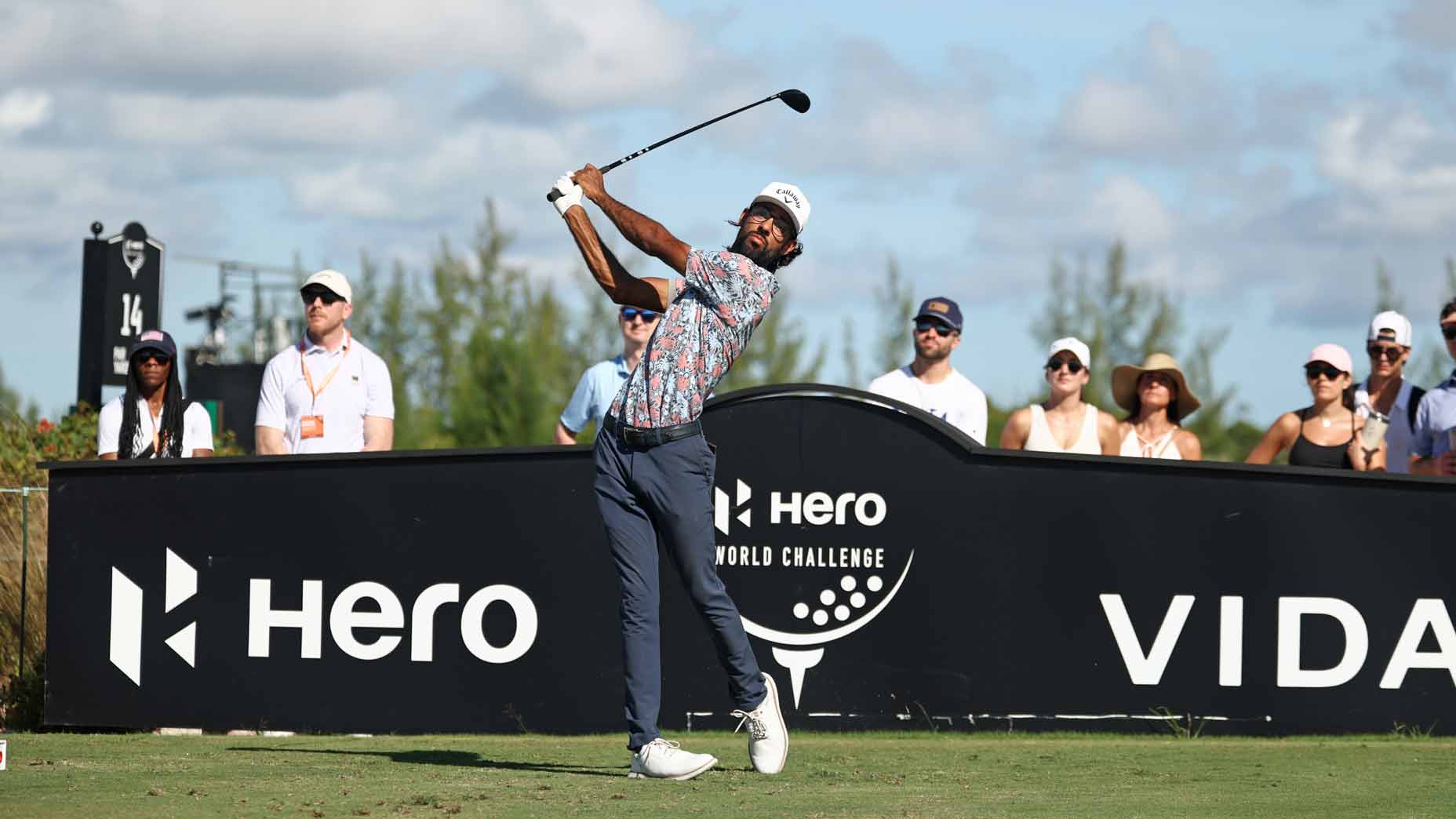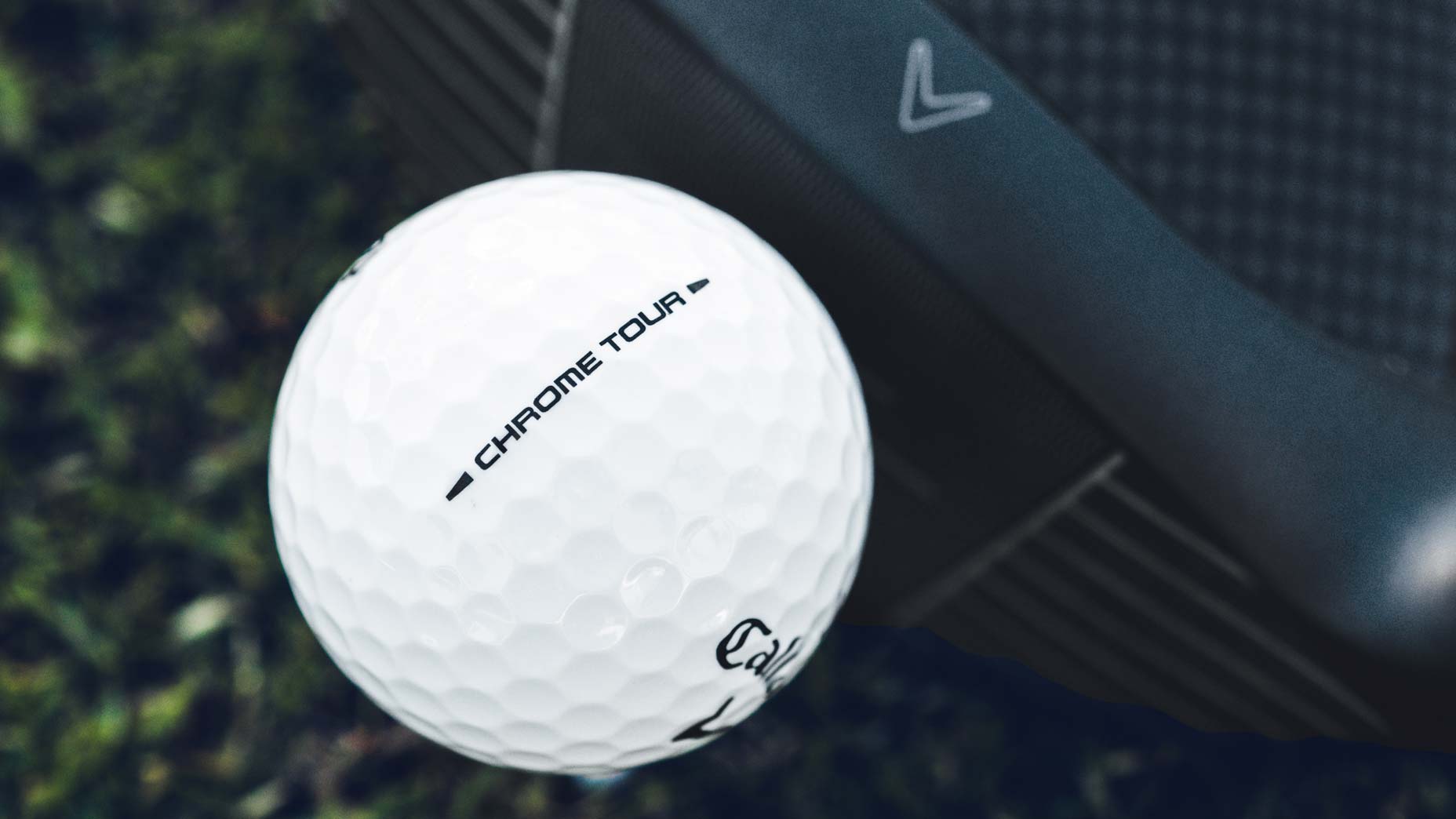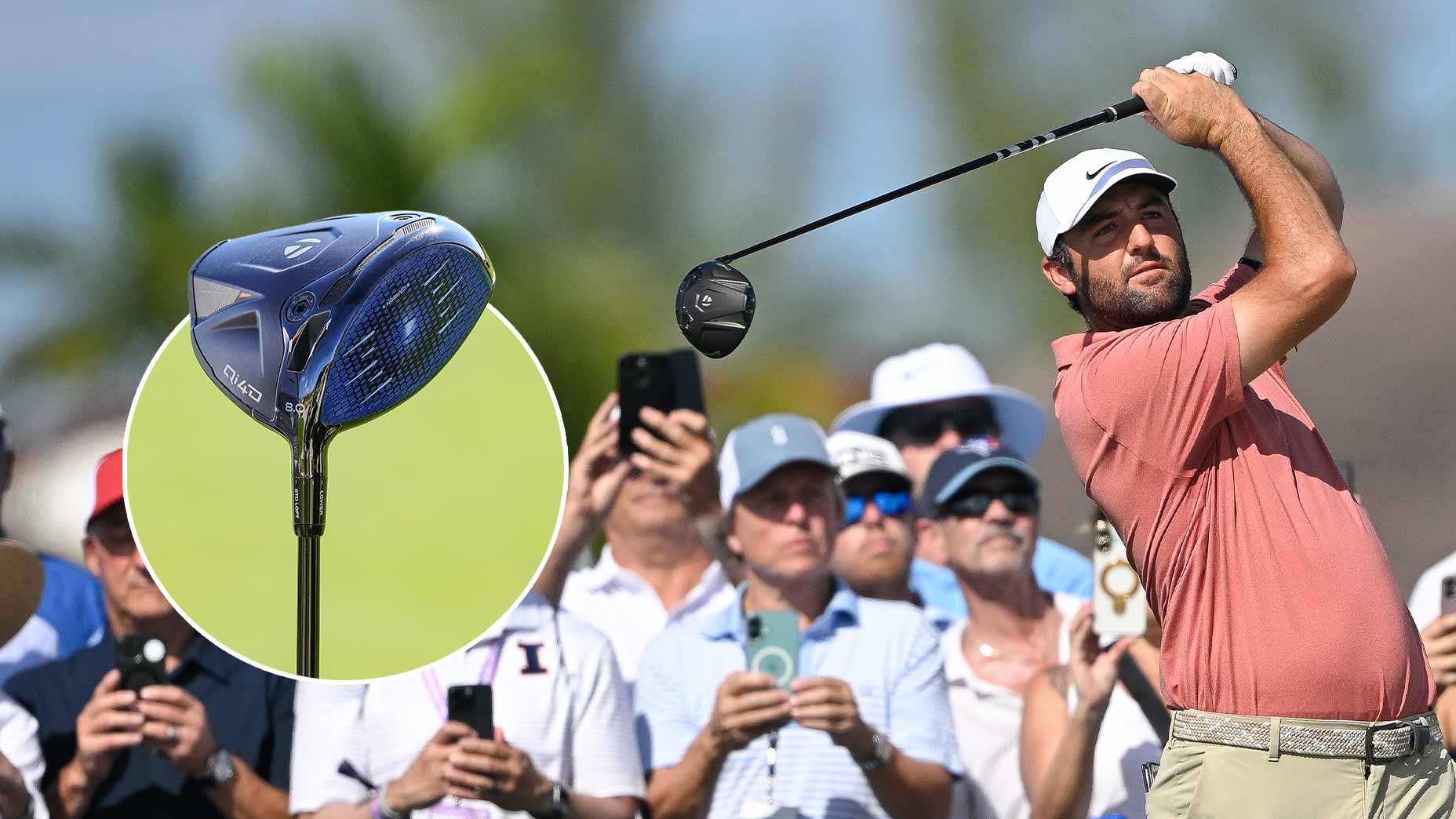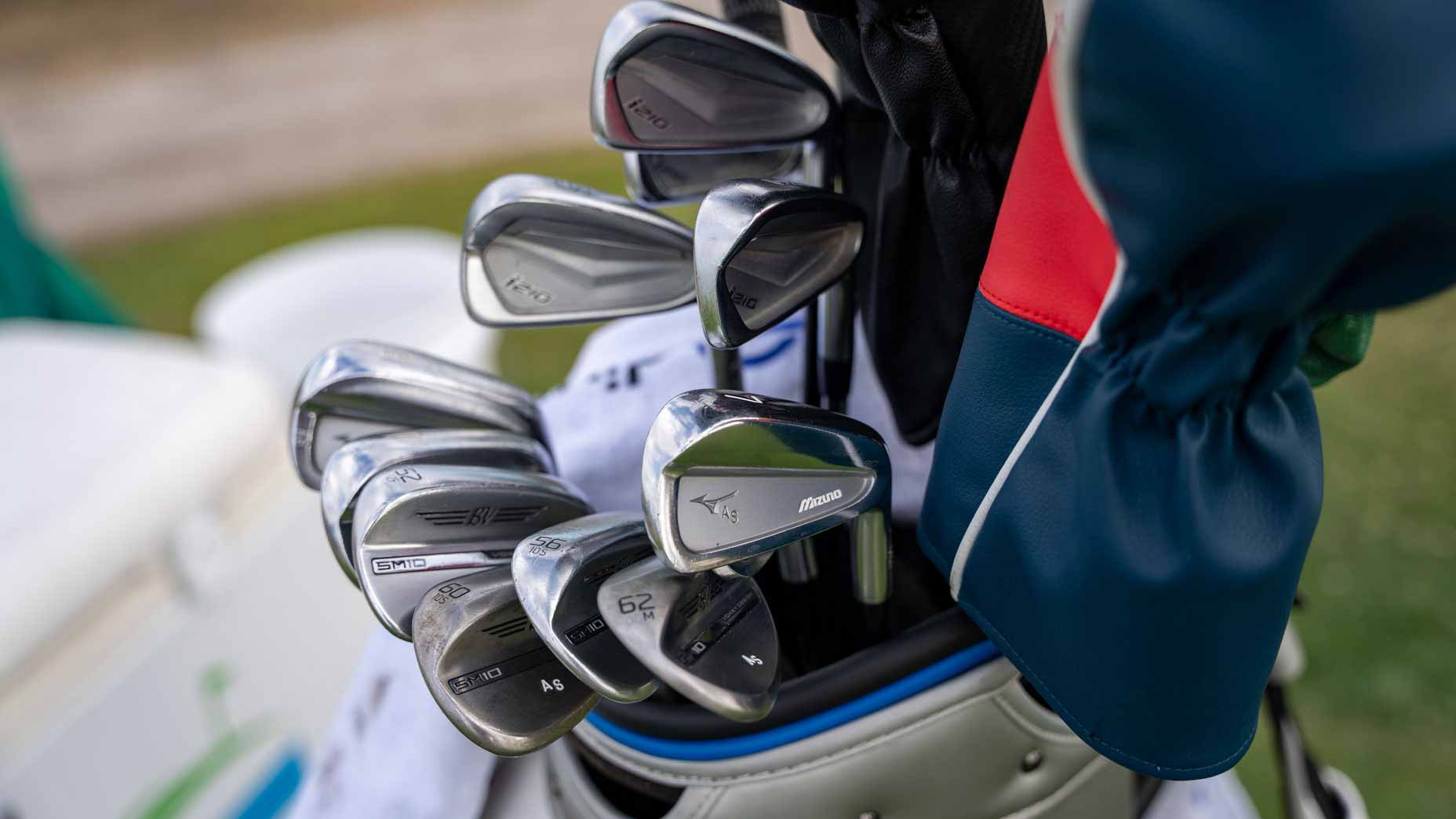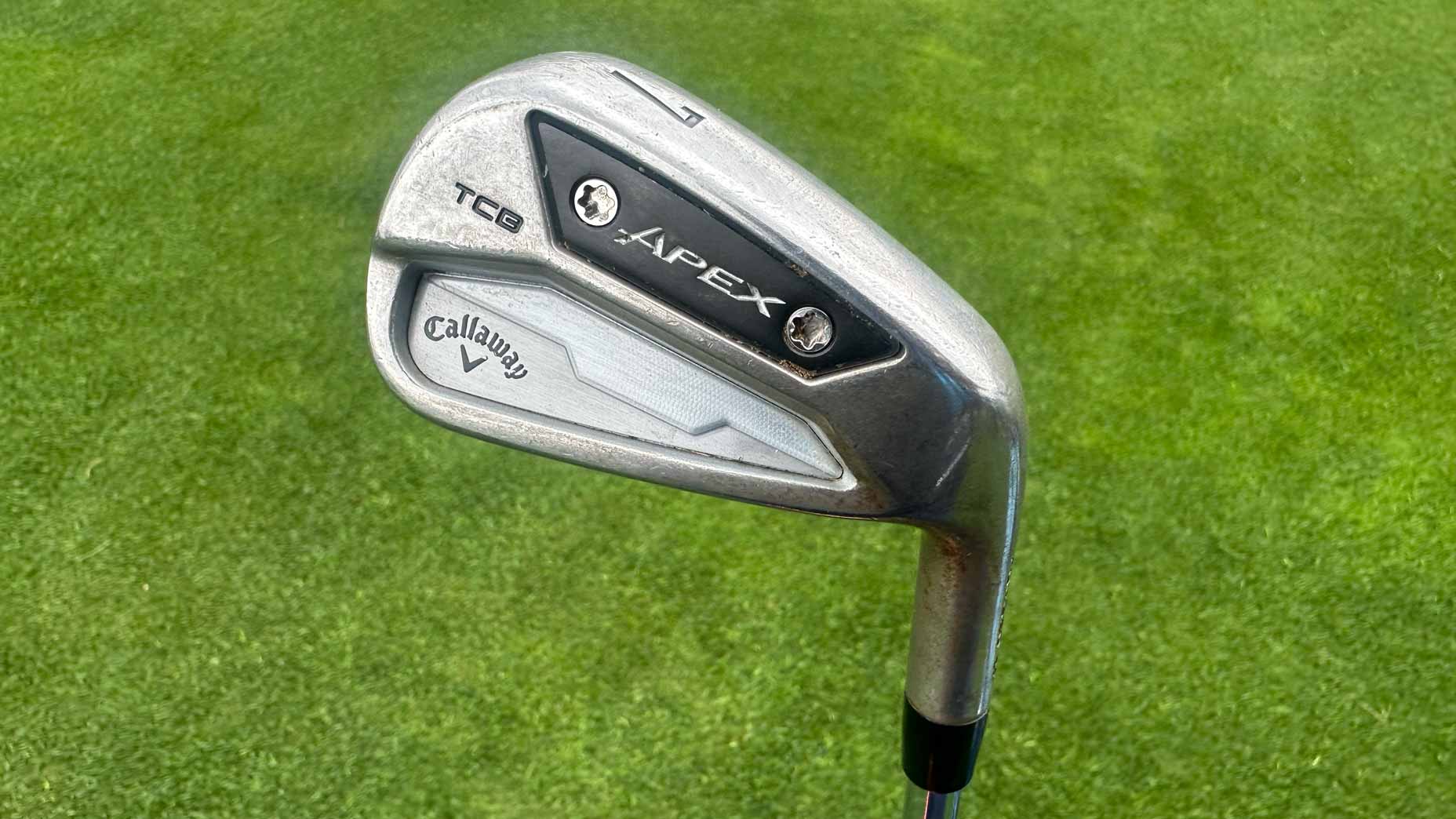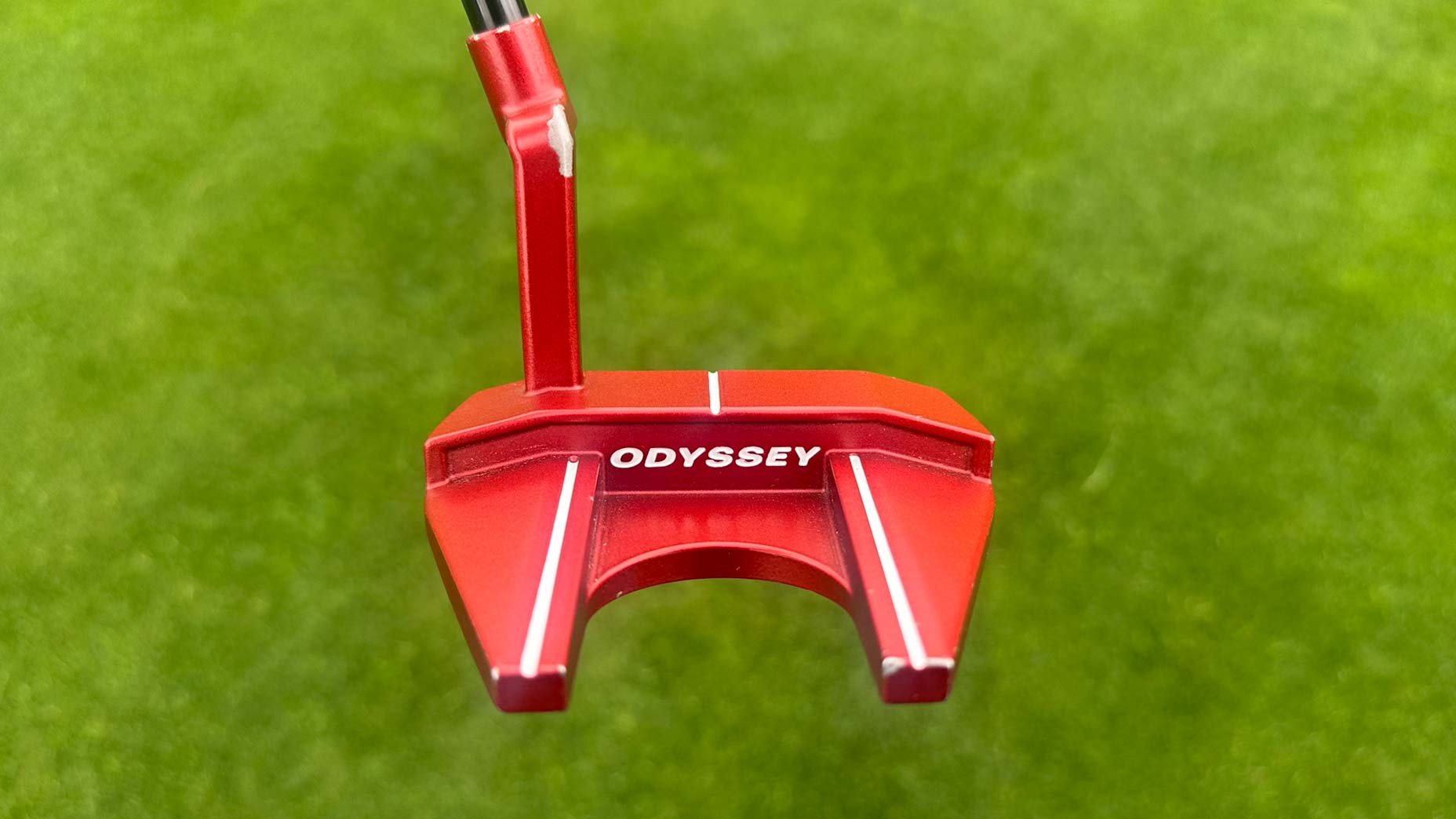The gear crew at GOLF.com spends much time at Tour events snapping photographs of the tools used by the best players in the world. Posting club images online without context sometimes works, but it doesn’t help the weekend golfer understand the why behind a pro’s setup. In a new GOLF.com series, equipment editors Jonathan Wall and Ryan Barath answer those questions by highlighting interesting clubs in players’ bags, unique weighting, loft sleeve settings and more. Welcome to “Bay Spy.”
***
It’s hard to believe that a 21-year-old golfer could be considered a veteran, but having played professionally since he was just 17 Akshay Bhatia is exactly that. After years on the PGA Tour’s developmental Korn Ferry Tour, Bhatia finished runner-up at the opposite-field 2023 Puerto Rico Open, earning him special temporary member status on the PGA Tour for the rest of the 2023 season.
Bhatia is one of only a handful of left-handed golfers on the PGA Tour, so he has a unique setup. Let’s dive in!
1. If you’re not first, you’re last
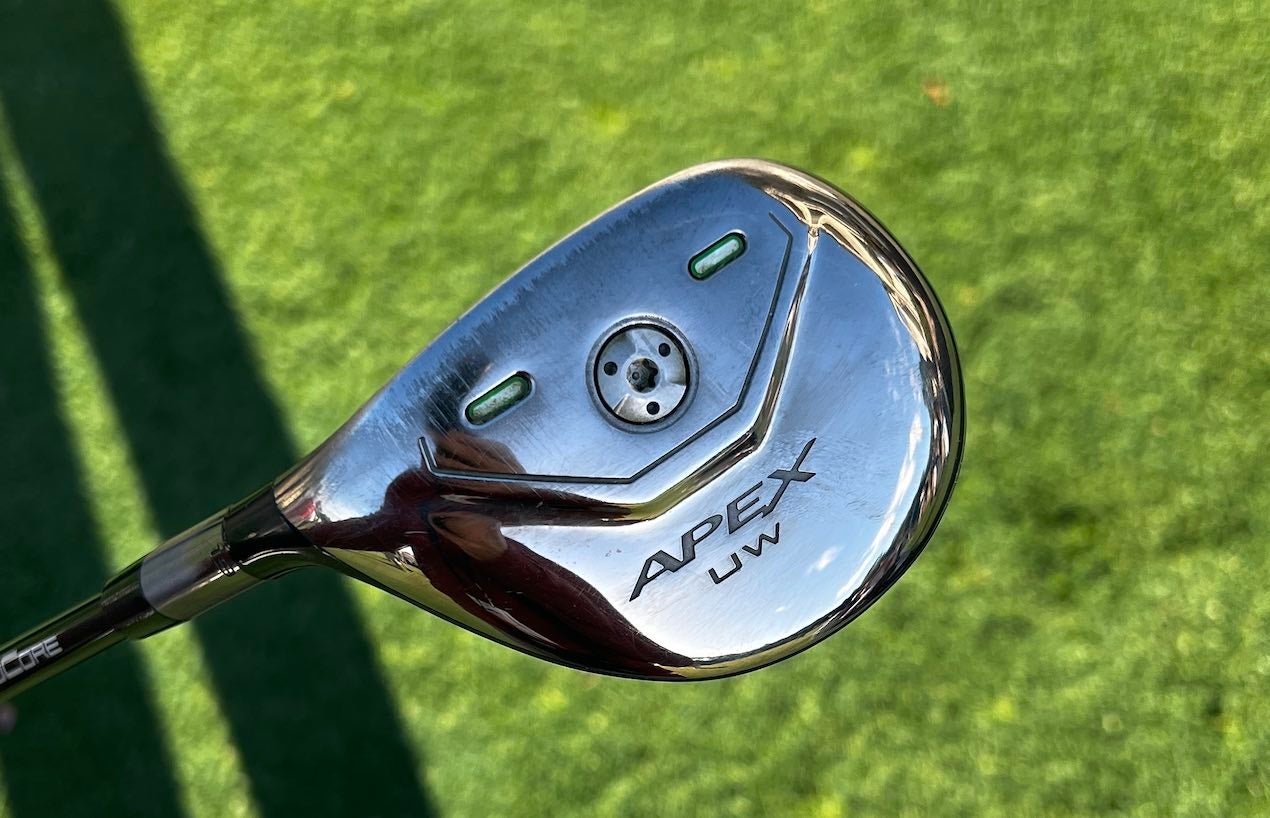
How could we not start with one of the coolest clubs in Akshay’s bag, Callaway’s first utility wood?
Even though he’s one of few lefties on Tour, Bhatia actually had one of the first Callaway UW prototypes, which he added to his bag at the 2021 U.S. Open. Since then, it has never left. The biggest tell of the UW’s prototype status is the lack of overall branding and final finishing on the sole of the club, but beyond that, it has all of the internals and technology of the current retail model.
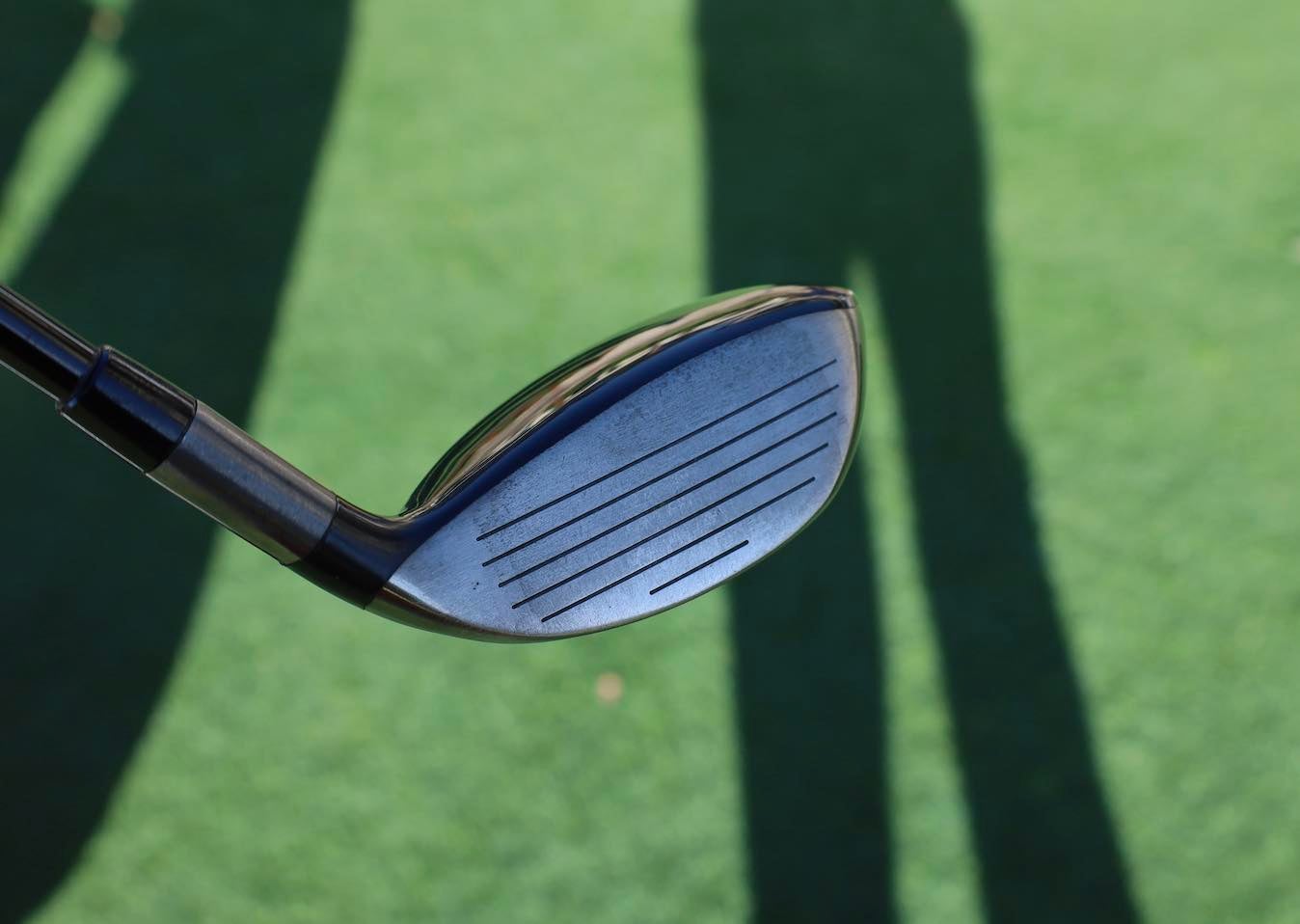
What makes the story of this club more interesting is that manufacturers don’t often let players keep prototypes in the bag, but with Bhatia being the only lefty officially on Callaway’s staff, and the club being a great fit, there is no push to make any changes.
2. Speaking of changes
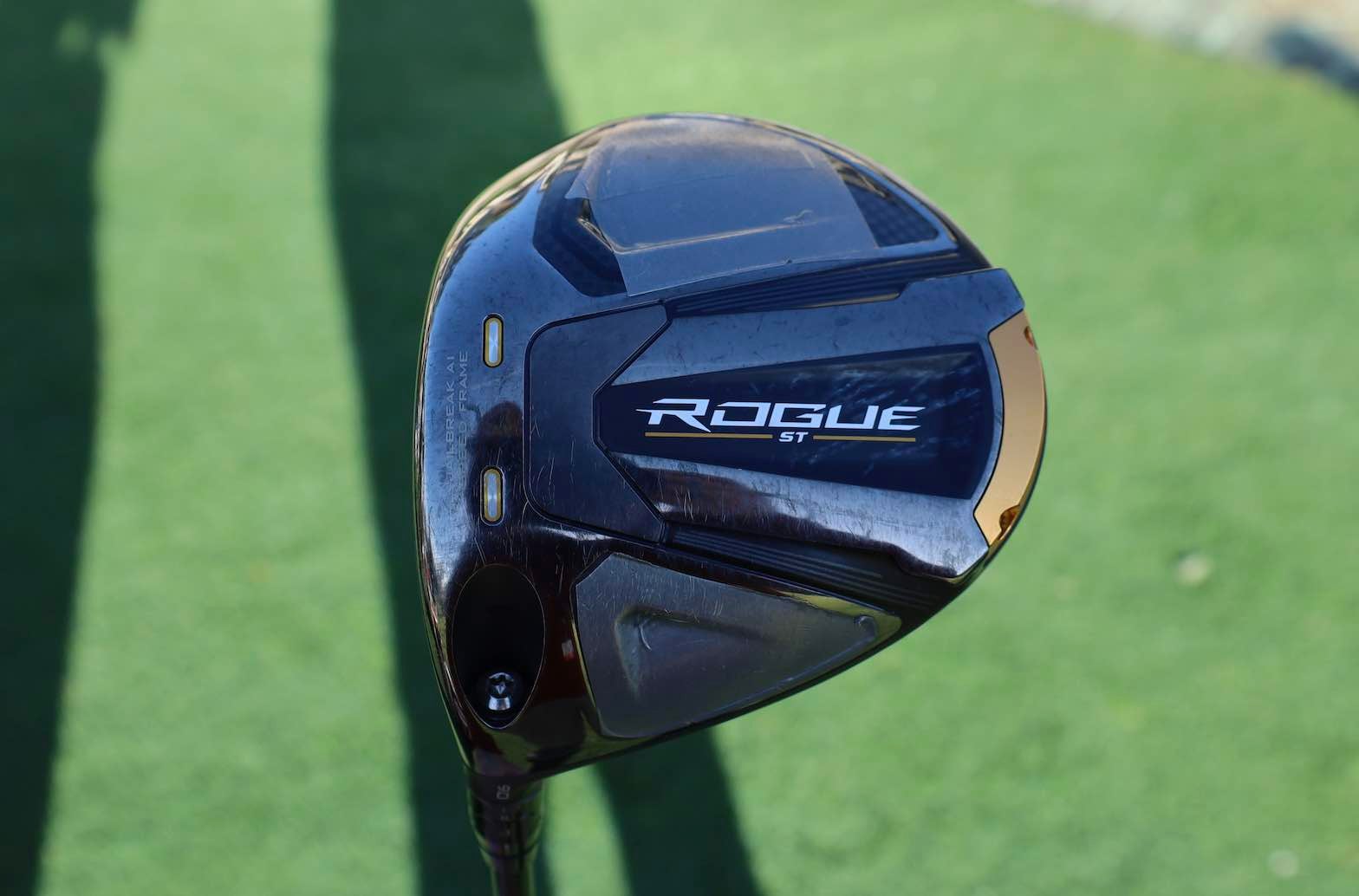
Similar to the UW, when it comes to Bhatia’s driver, Callaway is happy with the “if it’s not broken don’t fix it” mentality. The Rogue ST still is a high performer, and his driver is dialed in for his game and swing, including a hosel setting that creates an open face angle, and lead tape to get to the desired swing weight and feel.
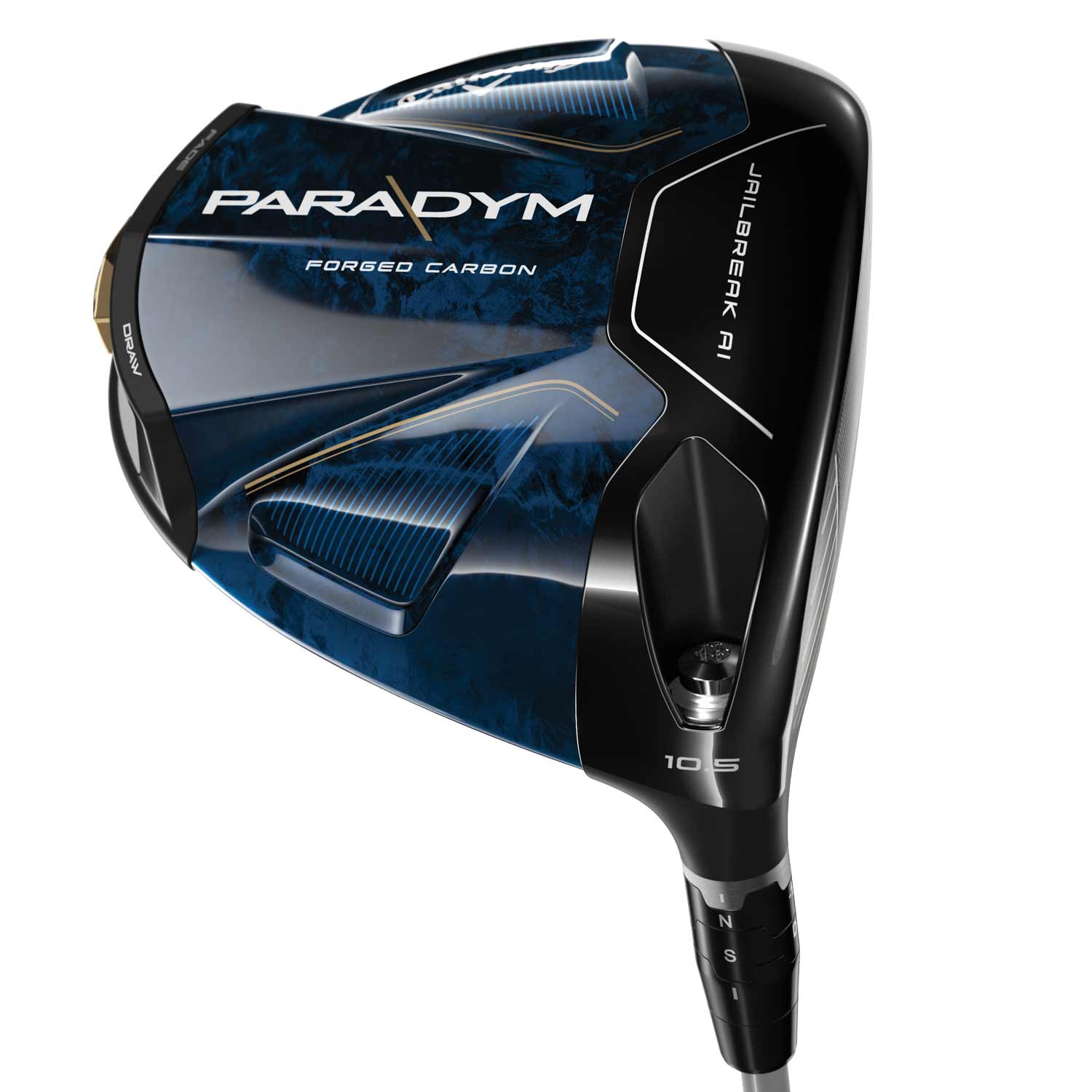
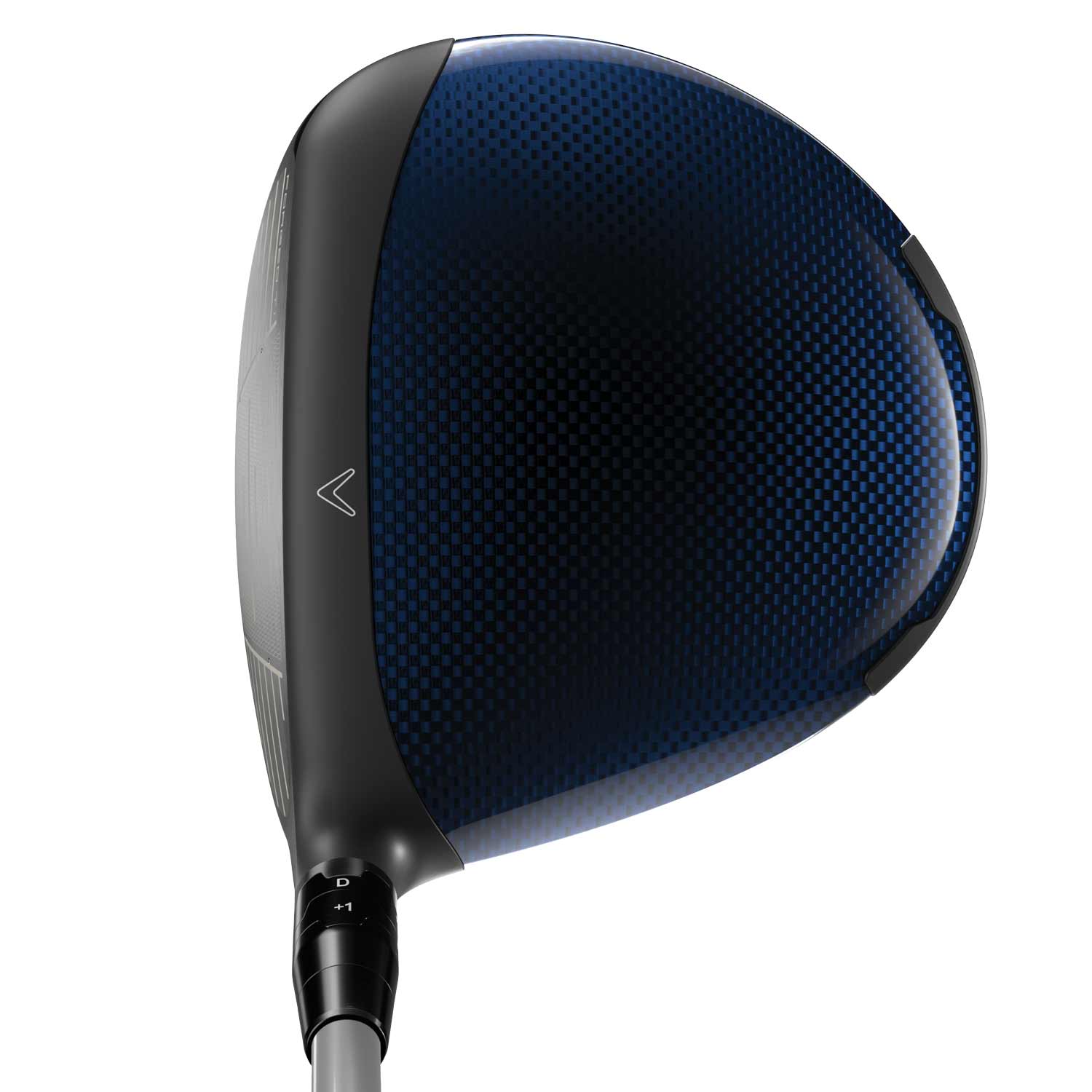
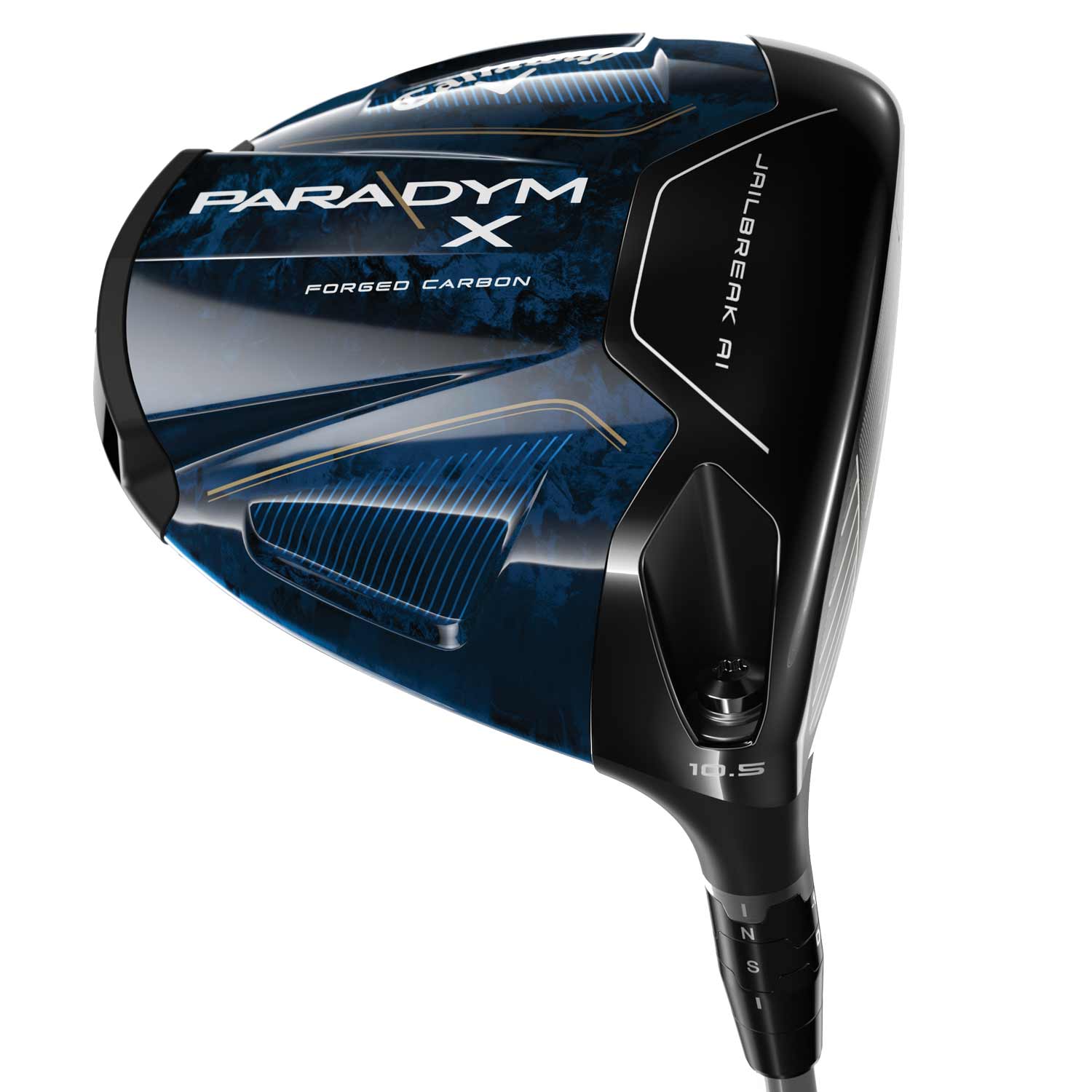
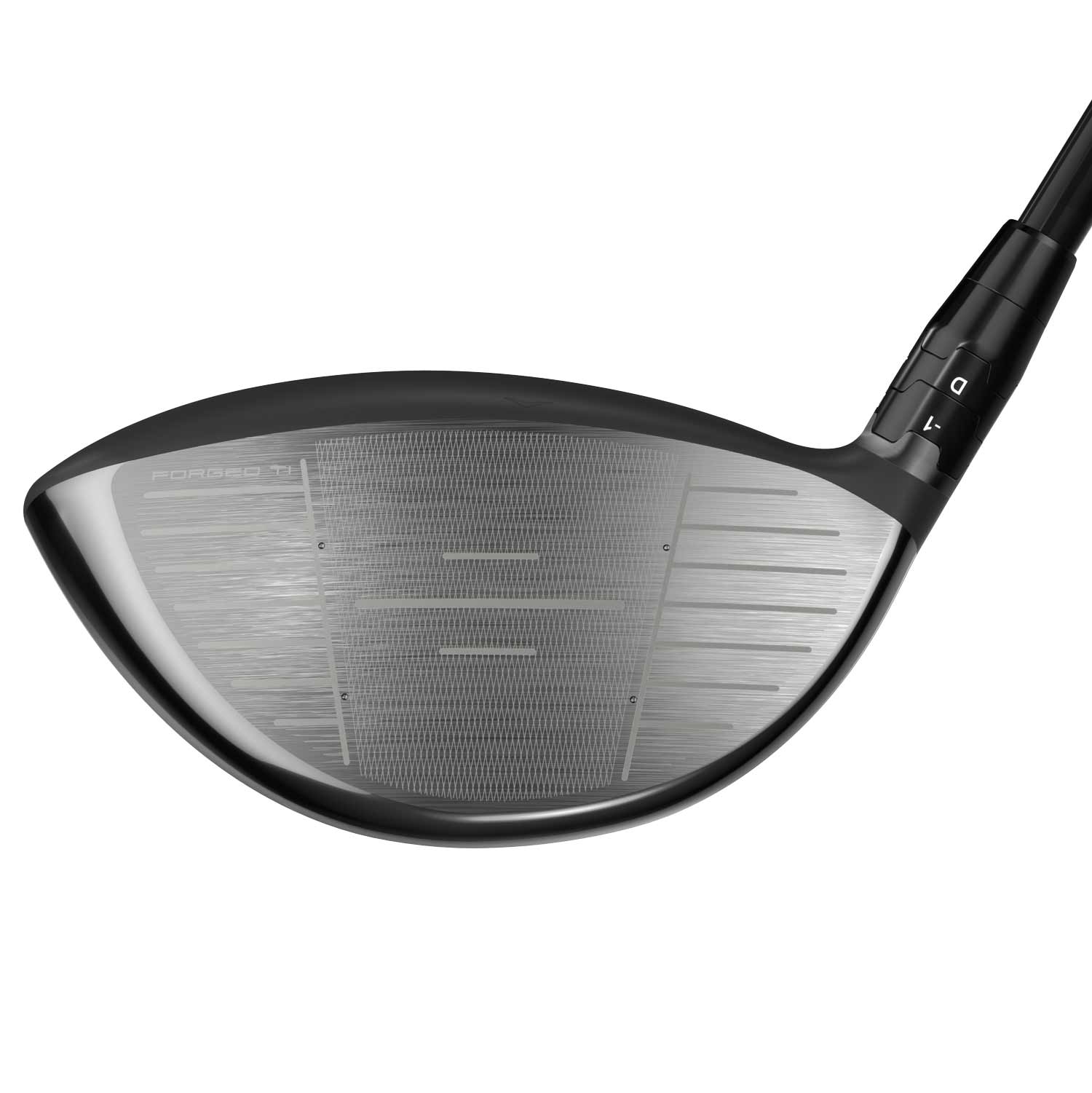
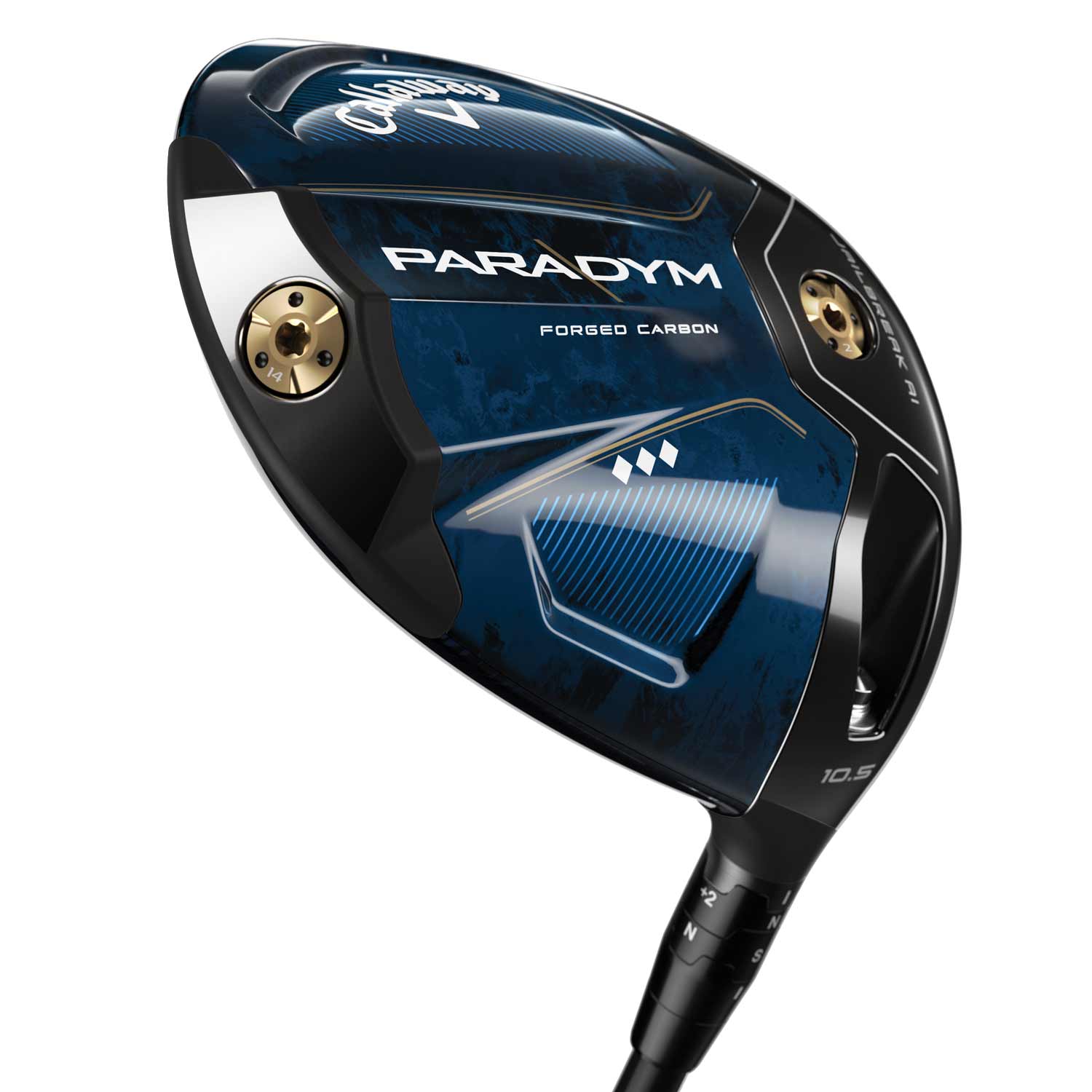
Callaway Paradym, Paradym X and Paradym Triple Diamond drivers.
3. Right down the middle
You practice your putting, right? Have you ever practiced and played so much that you created a wear mark on the insert of your putter?
Well, Bhatia has!
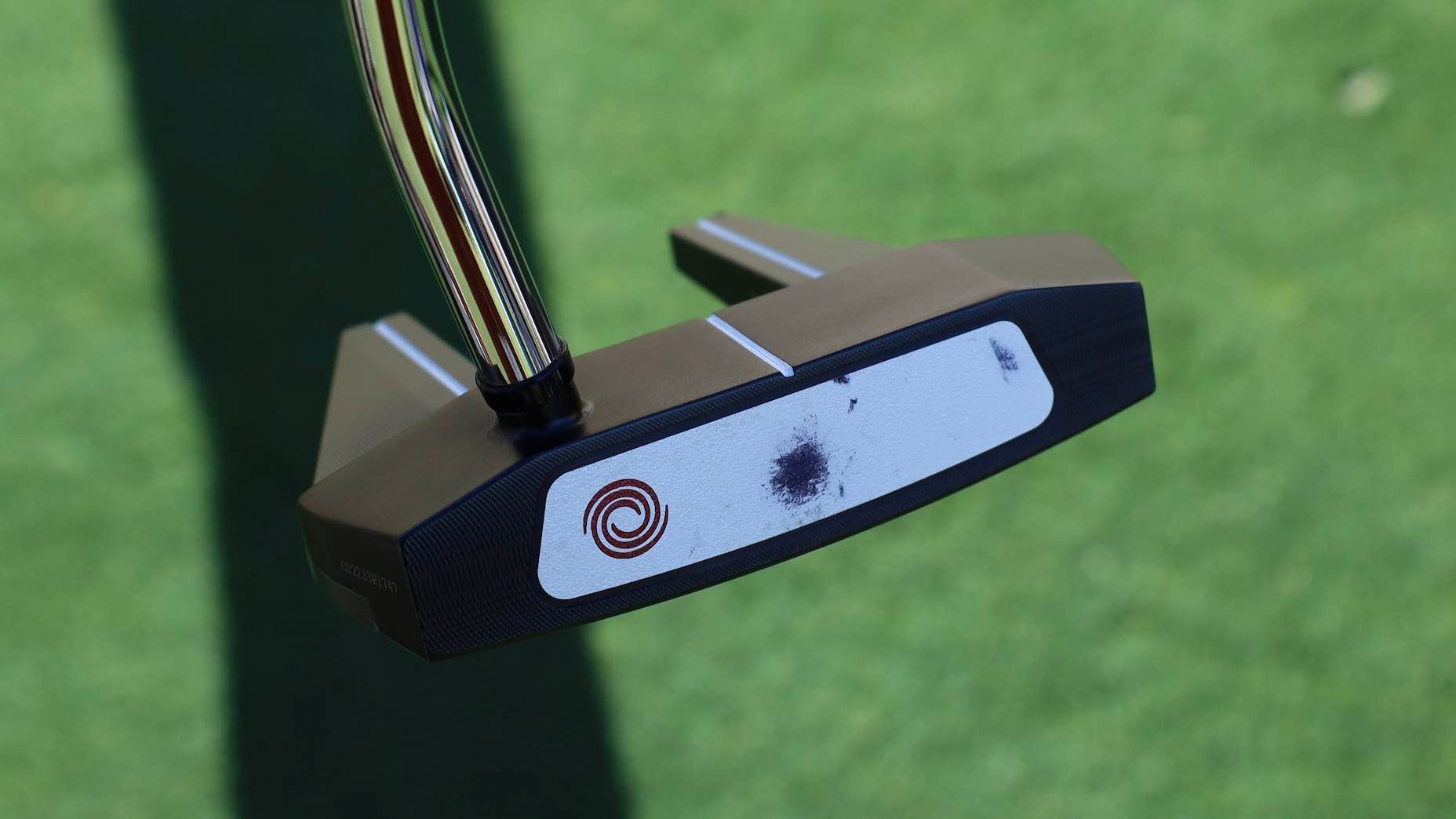
Thanks in part to his copious amounts of practice and playing, there is a noticeable spot on the face of Bahtia’s Odyssey Tri-Hot 5k number 7 DB (double bend). Seeing it in person is startling considering I have putters that are closing in on 5 years old and the grips still feel brand new. Either this is a sign that I need to work on my putting more, or Mr. Bhatia works on his putting a lot more than the average golfer. We can assume the latter.
4. Custom iron grinds
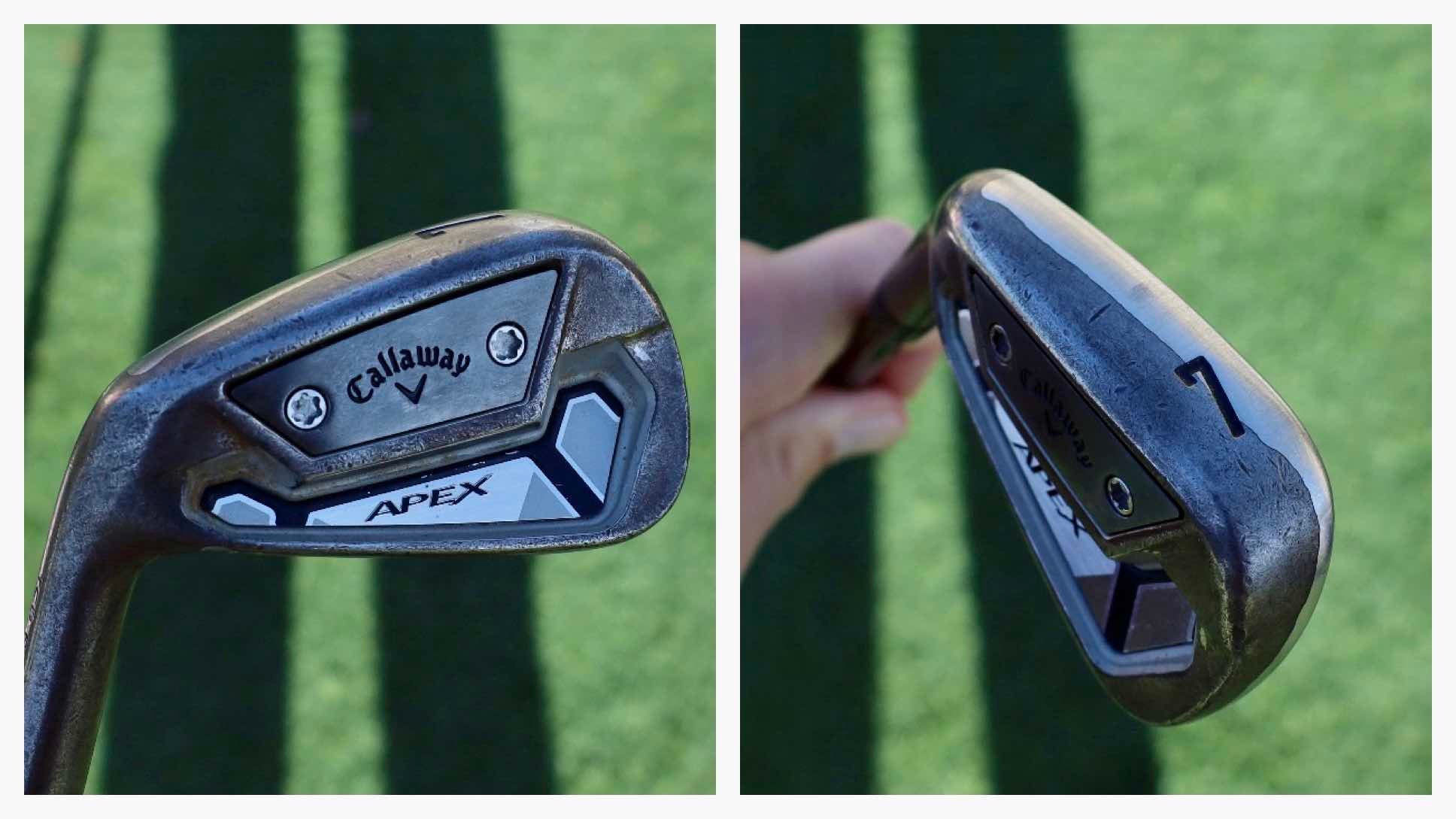
If there is one thing that makes Bhatia’s clubs so interesting, it’s his commitment to using whatever works regardless of how it looks in the bag — although custom grind irons look pretty darn sweet.
In the case of his TCB irons, they have mass removed from the trailing edge of the sole to reduce turf interaction and allow for more open-faced shots, along with adjustments to the topline and toe to create a particular shape from address. Confidence can come from a variety of things when it comes to clubs, and creating a pleasing visual from address is one of the biggest things for Tour players, especially for approach play with irons.
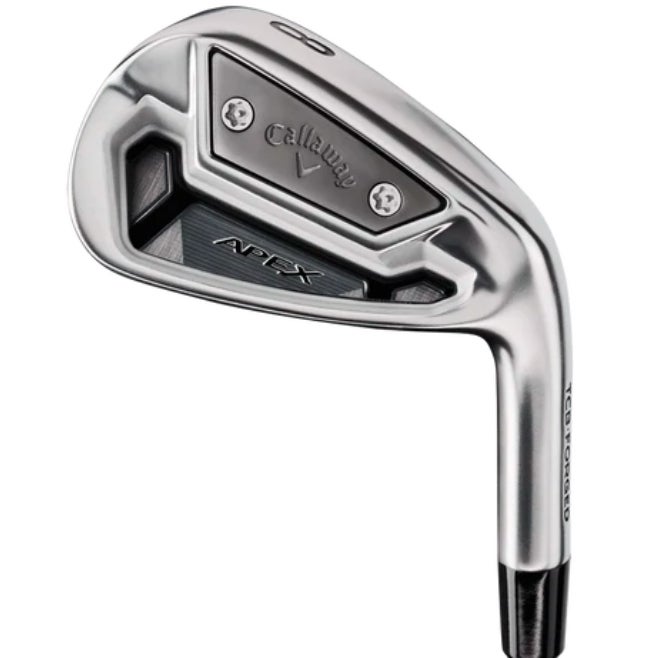
Callaway Apex TCB irons
5. Wedges
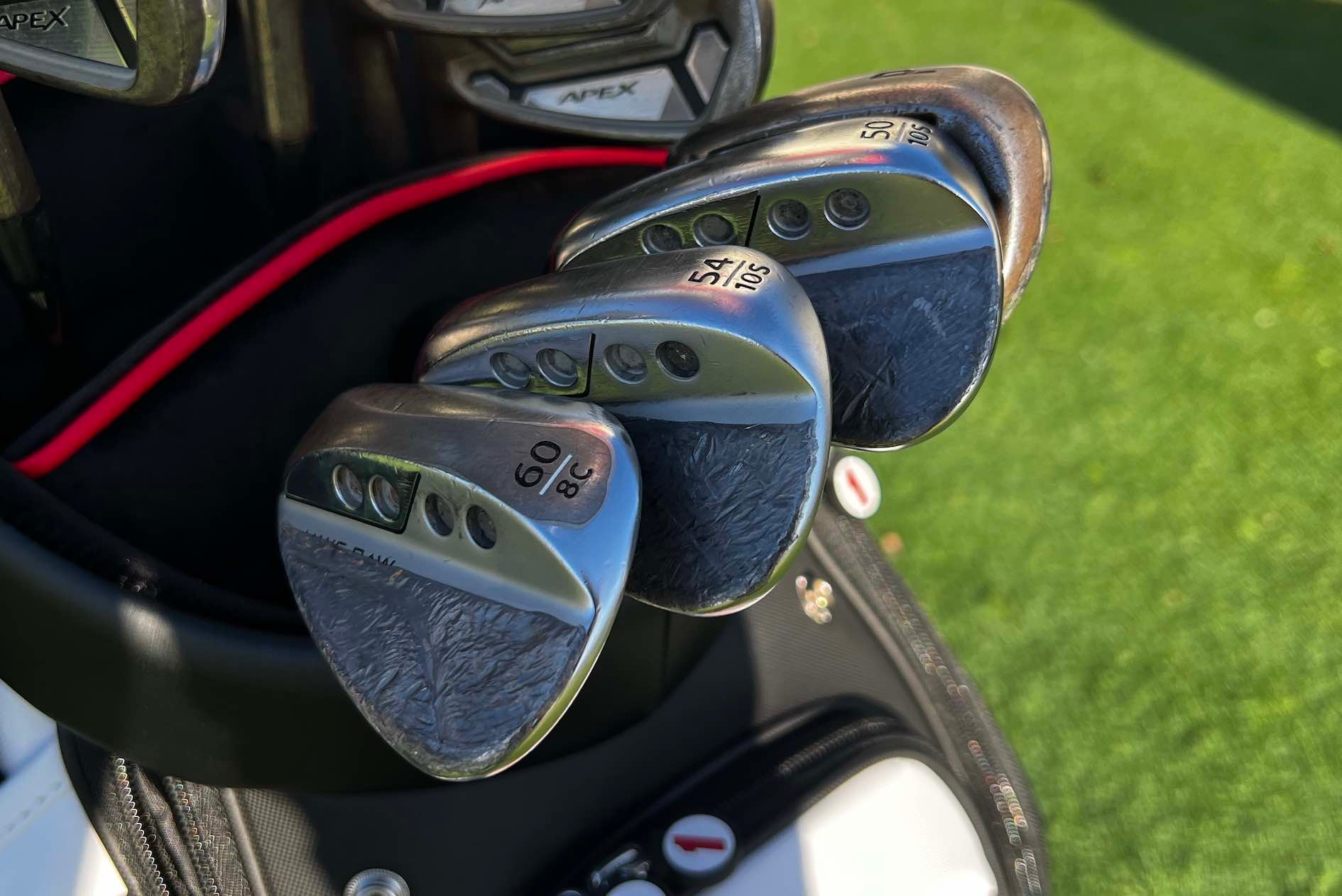
With so much custom work in his irons, you’d expect to see some crazy wedge grinds in Bhatia’s bag, but it’s actually quite the opposite. He plays standard 50- and 54-degree Callaway Jaws Raw wedges with no shortage of lead tape, and for his lob wedge, the only modification beyond lead tape is a small amount of mass removed from the tailing edge to make opening the face just a little easier.
This is beneficial, because if the wedges ever need to be replaced, there is minimal grind work needed to make sure he has exactly what he needs, which is a good lesson for weekend golfers.
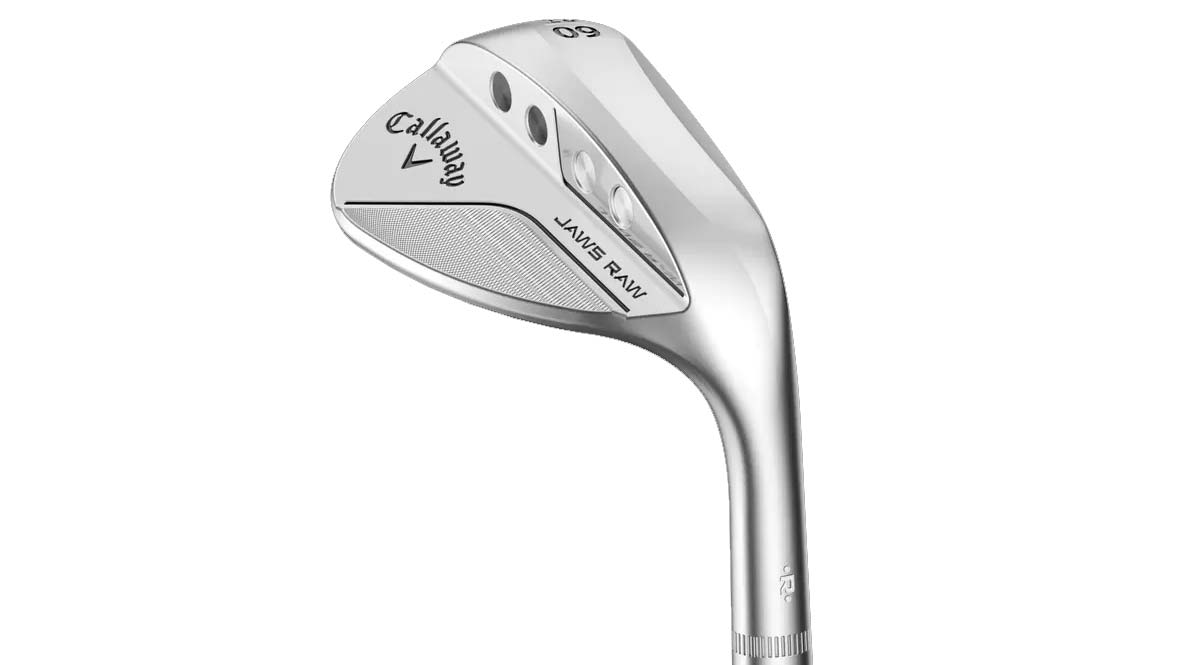
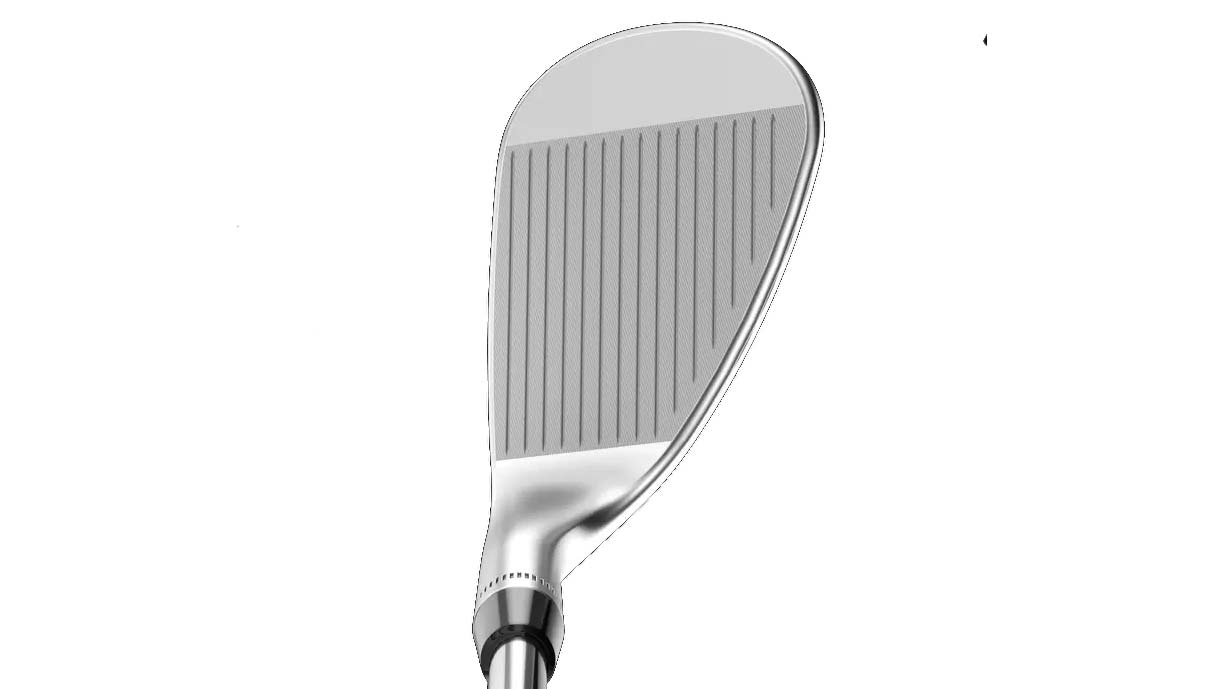
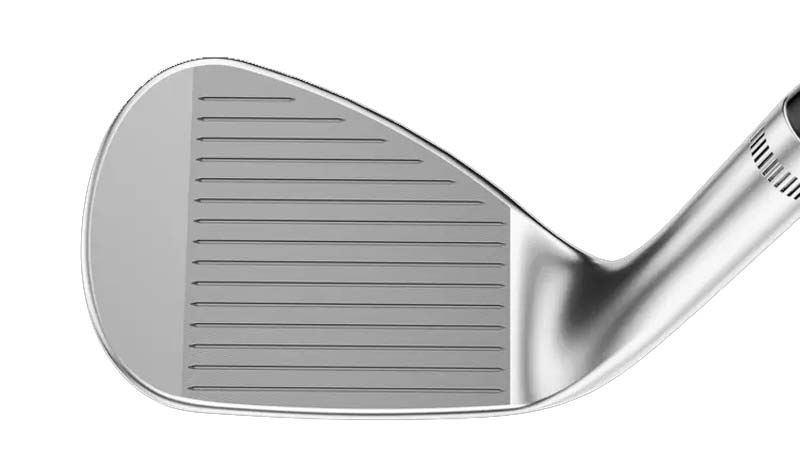
Callaway JAWS Raw Wedges
6. Game-improvement fairway wood
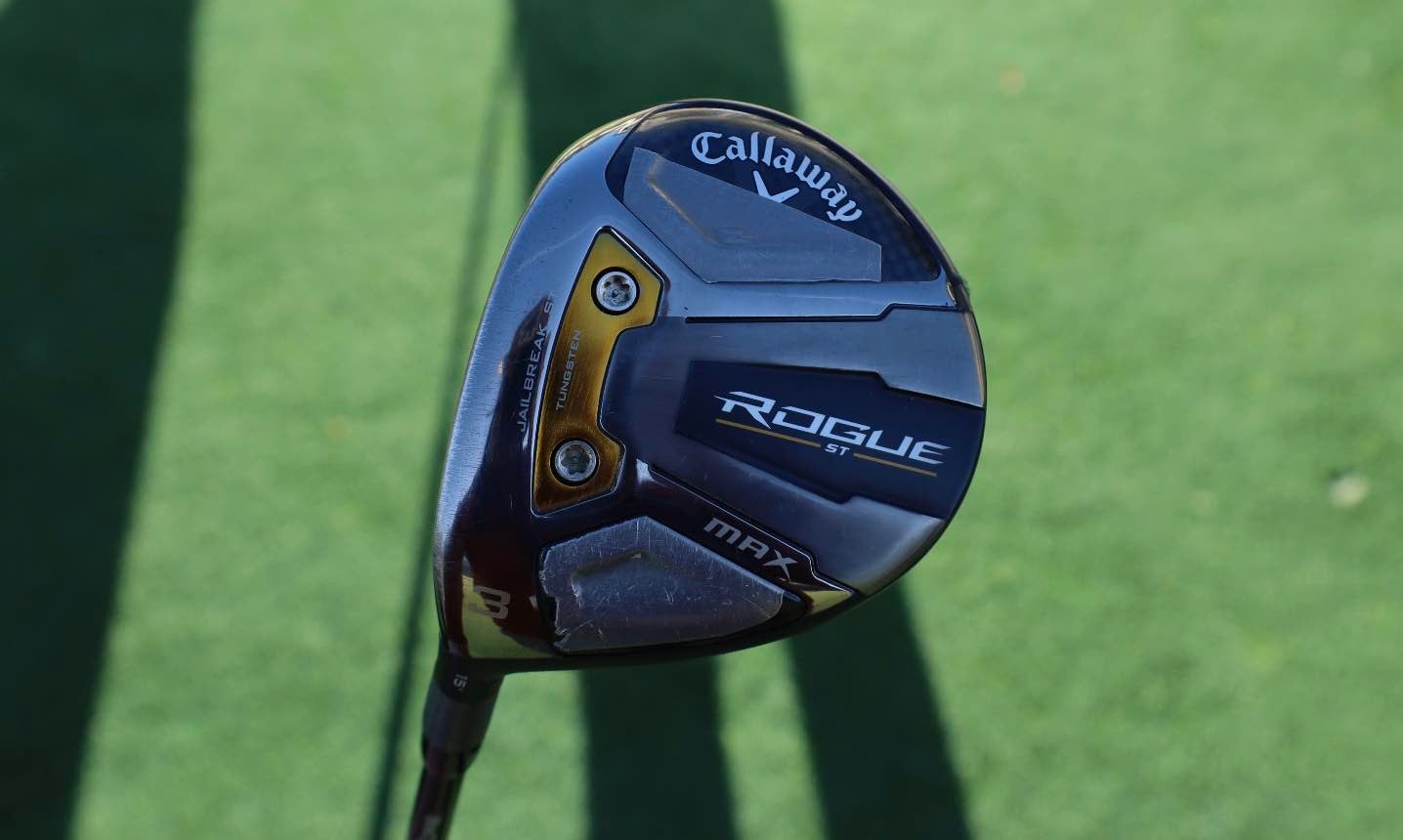
Once again, sticking to the theme of using what works, Bhatia’s sole fairway wood is a Rogue ST Max, which in Callaway’s line is the highest-spinning, most game-improving model. In the case of this club, it’s all about having a club that offers confidence off the tee and deck, and the shallower head shape makes this club easy to hit. Not all golfers need to lower spin, and with the ST Max, the shallow face helps keep the ball in the air longer while the extra spin makes working the ball easier, too.
If there are any takeaways for all you golfers out there, it’s that the most important thing when it comes to putting clubs in your bag is to focus on results rather than assuming a certain style of club is going to fit your game. Higher handicap players might fit best into a low spin driver, and in the case of Bhatia, a game-improvement fairway wood can be the perfect fit for one of the world’s top players. Find what works for your game, and run with it.
Want to overhaul your bag for 2023? Find a fitting location near you at GOLF’s affiliate company True Spec Golf. For more on the latest gear news and information, check out our latest Fully Equipped podcast below.

